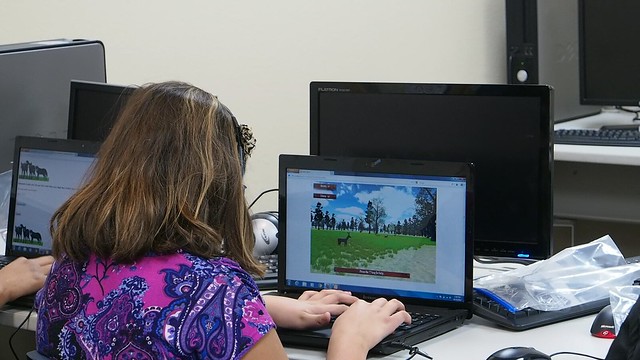
The digital divide between population centers and rural America is a fact of life. For some, it’s simply a lack of cell phone coverage; for others, it signals a lack of education for their children.
The situation gave innovators at 7 Generation Games the idea of developing immersive video games and interactive apps aimed at improving math skills for children in rural areas. The company has offices in Santa Monica, California, and Minneapolis, Minnesota. “We create solutions for the schools Silicon Valley has left behind, building software optimized for rural and tribal communities,” said Maria Burns Ortiz, chief executive officer and co-founder of 7 Generation Games.
USDA’s National Institute of Food and Agriculture has supported The Julia Group, parent organization of 7 Generation Games, with several Small Business Innovation Research (SBIR) grants. To date, 7 Generation Games has received three SBIR Phase I awards, all of which have advanced to Phase II.
The initial grant was for the Dakota Learning Project (DLP), which initially focused on tribal schools. DLP consisted of three video games and a library of teacher resources that integrated math and Native culture. In the first year, students who played the games improved their math skills by 30 percent – three times greater than that of the control group. DLP replicated those results in its second year.
Building on their success with DLP, 7 Generation Games tackled the shortage of bilingual resources available to teach math in rural communities, especially in schools where a high number of students were learning to speak English as well as other curricula. The result was “AzTech Games,” bilingual games that integrate history, math, and an English-language teaching tool.
Their third project went in a different direction. “One of the tribes that had seen the success of our math games asked, ‘Can your games be used to teach things other than math?’” Burns Ortiz said. “They wanted us to build a digital tool to teach healthy decision making to youth from families that have been impacted by methamphetamine and opioid addiction. That led to the creation of ‘Crossroads: A Game of Choices.’”
Burns Ortiz feels that the success of 7 Generation Games programs is due to their two-tiered approach. “No product is going to single-handedly solve the issues when it comes to math proficiency,” she said. “We believe a game-based format is the perfect way to teach math because not only is it an engaging, but it incorporates and develops all of characteristics you need to succeed at learning – perseverance and resilience to failure.
“Also, we want to create games that reflect kids who don’t see themselves elsewhere – whether they’re Native youth or kids who speak primarily Spanish at home,” Burns Ortiz said. “That visual (of seeing their culture represented on the computer screen) is really powerful for these kids.”
